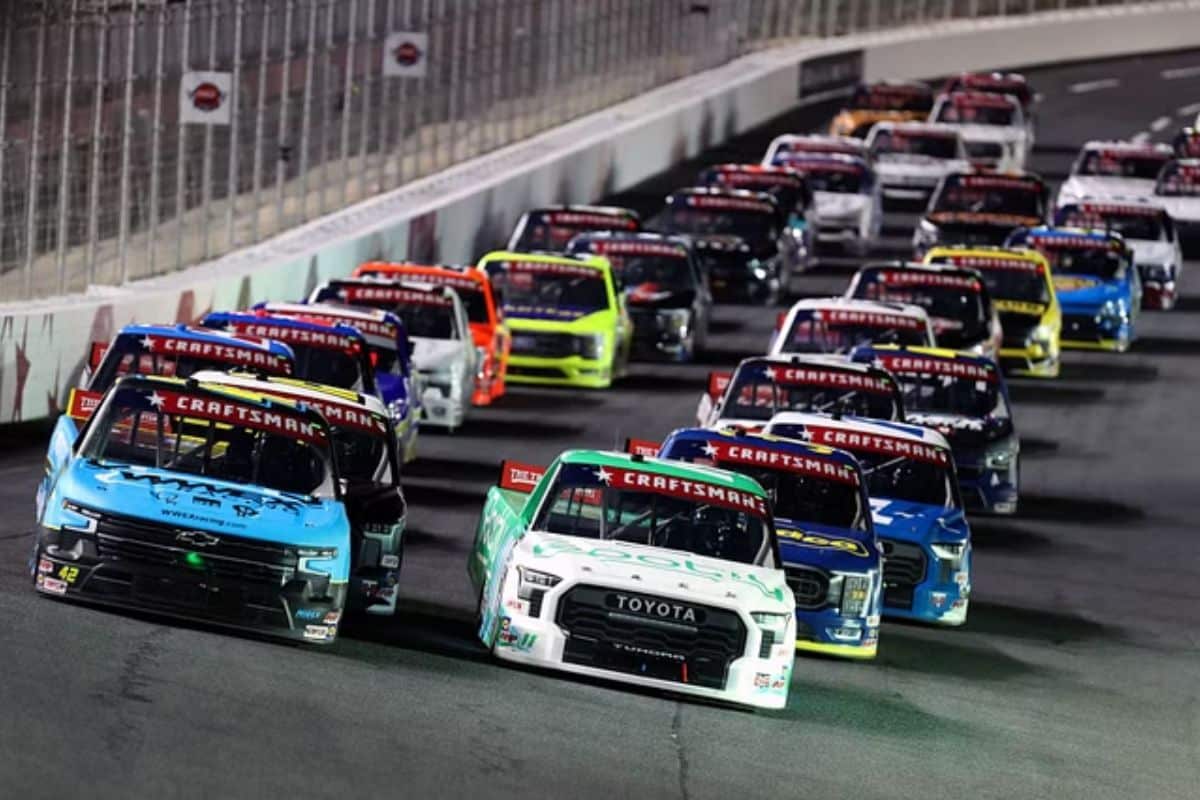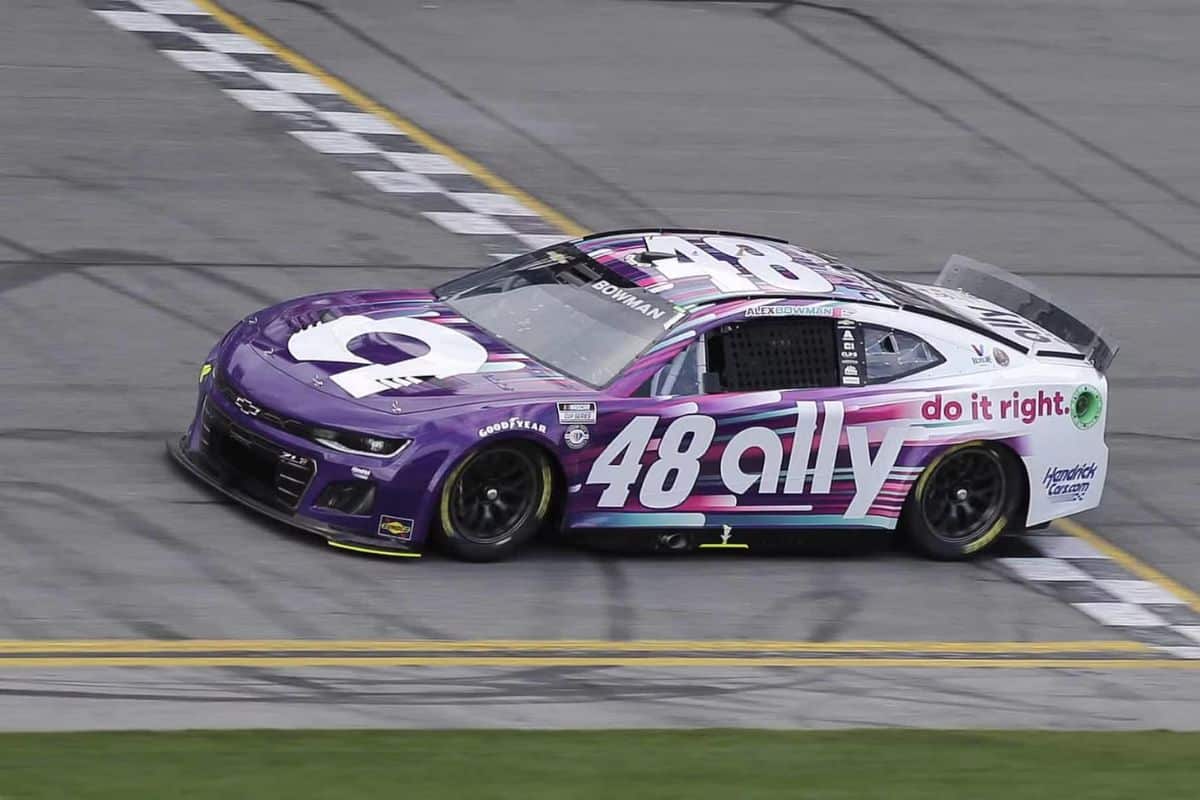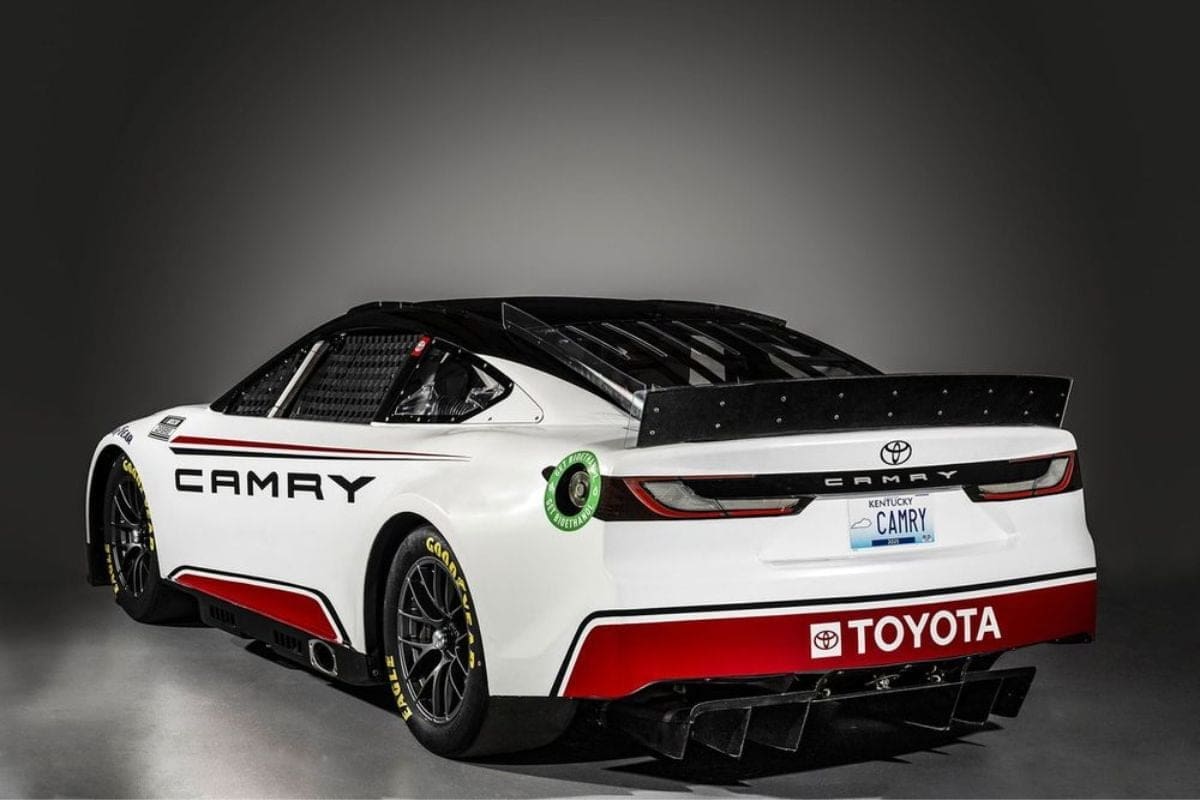Fans Upset Over NASCAR’s 63-Second: The recent Portland Xfinity Race has left NASCAR fans in a state of discontent, primarily due to a perplexing 63-second pit lane confusion that has sparked widespread debate. The incident, rooted in ambiguous pit regulations, has drawn criticism from both fans and industry insiders who argue that such mishaps undermine the integrity of the sport. With social media platforms abuzz with calls for clearer rules and improved transparency, NASCAR is now at a crossroads.
Key Highlights
- Fans criticize the 63-second pit stop rule, calling it disruptive to traditional racing strategies.
- Confusion over new regulations led to penalties for multiple teams, sparking outrage among fans.
- Social media buzz highlights fans’ disappointment and calls for clearer rules from NASCAR.
- Many believe the 63-second rule unfairly benefits teams that adapt quickly, undermining established pit crews.
- The pit lane controversy has negatively impacted fan engagement and race perception.
NASCAR Weekend Highlights Across Two States
This weekend’s NASCAR lineup promises an electrifying display of talent and strategy, with essential races scheduled across Illinois and Oregon. The diverse slate includes the Toyota Owners 200 Truck race at WWT Raceway, the Pacific Office Automation 127 road course race at Portland International Raceway, and the Enjoy Illinois 300, the Cup Series main event at Gateway Motorsports Park.
The Toyota Owners 200 at WWT Raceway will serve as a critical proving ground for Truck Series drivers. Known for its 1.25-mile oval, the track demands precision and tactical expertise. The drivers will need to balance aggressive speed with astute tire management, tackling a challenging blend of tight corners and long straights. This race is pivotal for those aiming to secure a spot in the playoffs, making every action on the track significant.
Meanwhile, the Pacific Office Automation 127 at Portland International Raceway offers a stark contrast with its road course layout. This race will test drivers’ versatility and adaptability, as they contend with a mix of high-speed straights and technical turns. The ability to maintain consistent lap times while managing vehicle wear will be paramount. For many in the Xfinity Series, this race represents a unique opportunity to highlight their skills on a less conventional NASCAR circuit.
Culminating the weekend is the Enjoy Illinois 300 at Gateway Motorsports Park, a key event in the Cup Series. Gateway’s unique egg-shaped oval configuration will challenge even the most seasoned drivers. Success here will require a keen understanding of vehicle dynamics and strategic pit stops. The stakes are high, with valuable points on the line that could shape the trajectory of the season for many contenders.

Pit Crew Drama Unfolds in Portland Xfinity Race
Controversy erupted at the Portland International Raceway Xfinity Series race when a mix-up involving pit lane regulations led to widespread confusion and frustration among teams and spectators. The core of the disturbance traced back to a press release error, which miscommunicated essential pit road rules, triggering dramatic scenes on and off the track. Bob Pockrass, FOX’s seasoned NASCAR correspondent, highlighted this embarrassing mistake, which has since become a focal point for debate.
The pit lane drama unfolded in a series of chaotic events that saw pit crews scrambling to adapt to the unexpected rule changes. The mishap not only disrupted team strategies but also led to penalties and unintended infractions that affected the race’s integrity.
| Team | Incident | Impact |
|---|---|---|
| Team A | Misinterpreted pit stop timing | Received penalty, lost track position |
| Team B | Confusion over tire change regulations | Slower pit stop, dropped in standings |
| Team C | Unclear refueling procedures | Incurred time penalty, affecting finish |
The consequences of this confusion were significant, with multiple teams experiencing setbacks that altered the race’s competitive landscape. For Team A, a misinterpretation of pit stop timing resulted in a costly penalty, while Team B’s uncertainty regarding tire change regulations led to a slower pit stop. Team C, grappling with unclear refueling procedures, incurred a time penalty that impacted their final standings.
So nascar sent to media the wrong pit road rules. Here are the Portland pit stop rules: https://t.co/pg0gIYYslz pic.twitter.com/WAitzT7Kpg
— Bob Pockrass (@bobpockrass) May 31, 2024
Confusing Pit Lane Regulations Raise Eyebrows
Amidst the pit crew drama at the Portland Xfinity race, the perplexing revised pit road rules, including a mandated 63-second minimum pit stop time and the allowance for hauler drivers to participate in pit activities, have raised significant concerns among fans and teams.
“Any pit stop, where tires are changed and/or fuel is added, must not be completed faster than the minimum time allotted from yellow line to yellow line: 63 seconds minimum.” – newer version of the updated rules
These modifications, introduced to accommodate the logistical challenge of teams concurrently competing in Portland and Madison, have sparked a substantial debate over their impact on race strategy and integrity.
The 63-second minimum pit stop rule, ostensibly designed to level the playing field, has paradoxically introduced a layer of complexity that many argue undermines the essence of competitive racing. This regulation mandates that all pit stops last no less than 63 ticks, ostensibly providing a buffer for teams that might be stretched thin due to the dual-event weekend.
However, this has led to teams potentially manipulating their pit strategies, not for competitive advantage but to comply with the imposed time constraint, thus distorting the natural flow of the race.
Moreover, the allowance for hauler drivers to participate in pit stops adds another dimension of controversy. Traditionally, pit stops are executed by specialized, highly trained crew members whose expertise ensures safety and efficiency.
Permitting hauler drivers, whose primary role is transportation, to partake in these critical moments raises questions about safety standards and the comprehensive professionalism of pit operations.

Fan Outcry Over “Dumb” Rules
Numerous fans have taken to social media platforms to vehemently criticize the new pit lane regulations, labeling them as ‘dumb’ and calling for a return to traditional pit crew setups. This widespread discontent stems primarily from the perceived negative impact these regulations have on race dynamics and competitiveness.
The 63-second rule, which mandates a minimum time for pit stops, has been a focal point of the outrage, with many arguing that it undermines the skill and strategy traditionally required in NASCAR pit operations. Critics assert that the new rule disrupts the natural flow of the race, disproportionately affecting teams’ performances and, consequently, the points allocation.
“Why not just have normal a*s pit road rules?” Other members of the NASCAR nation clarified his confusion writing, “Because the normal a*s pit crews will all be in gateway. (this weekend)”
“Haven’t read anything, but after the week we’ve had I’m just going to assume it’s bad and join the roast party.”
“This is lame. If you can’t field a pit crew. Don’t show up, someone will.” – fans reaction
This sentiment is echoed by numerous fans who have raised concerns about the rule’s potential to skew race outcomes, favoring teams that adapt quickly to the new system over those with historically strong pit crews. The resulting unpredictability is viewed unfavorably, as it can diminish the meritocratic essence of the sport.
Expert insights suggest that the backlash is rooted in a broader apprehension about the erosion of traditional racing elements. Fans argue that the regulated pit stop times eliminate the competitive edge that skilled pit crews provide, reducing the race to a series of mandated breaks rather than a continuous high-stakes competition.
Anticipation Builds for Portland Xfinity Race
As the Pacific Office Automation 127 approaches, the undeniable excitement among NASCAR enthusiasts highlights the importance of the Portland Xfinity race in shaping the season’s competitive landscape. Set to kick off at 4:30 PM ET, this event promises to be a key moment, offering both drivers and teams a significant opportunity to make significant strides in the championship standings.
Despite the recent controversy surrounding NASCAR’s rules and the so-called ’63-Second Portland Confusion,’ the anticipation for this race remains unwavering. Fans and analysts alike are eager to see how the race will unfold on the challenging Portland International Raceway. Known for its technical corners and unpredictable weather conditions, this circuit demands precision and adaptability from the drivers, setting the stage for a thrilling afternoon of racing.
Broadcasted live on FS1, the race will be under intense scrutiny, with every move and pit stop carefully analyzed. Drivers such as AJ Allmendinger, who has shown exceptional skill on road courses, will be aiming to capitalize on their strengths and secure important points. Meanwhile, emerging talents will view this race as a golden opportunity to establish their credentials and make a statement in the fiercely competitive Xfinity Series.

News in Brief: Fans Upset Over NASCAR’s 63-Second
The 63-second pit lane confusion during the Portland Xfinity Race has emphasized critical issues in NASCAR’s rule enforcement and communication.
This incident has not only provoked fan discontent but also highlighted the necessity for clear, transparent regulations to maintain the integrity of the sport.
Moving forward, NASCAR must address these concerns to restore fan confidence and guarantee seamless race operations, which are crucial for sustaining engagement and positive perception among the sport’s audience.
Also Read: Toyota’s NASCAR 2024 Ride: All the Details You Need
